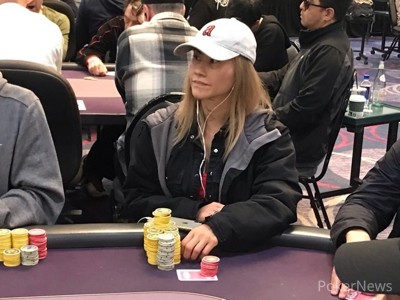Julie Gambling
Goodbye Gambling Blocker (by Family First) - Kiss online gambling goodbye. Most people enjoy gambling in a moderate and safe fashion which keeps Julie Schneider Poker it fun, but a minority may experience negative effects from gambling which outweigh their enjoyment. Please always keep these rules in mind: Limit the times Julie Schneider Poker you gamble - be aware if you are gambling more than you used to! In the affidavit, one of Julie's family members described the scope of the gambling outfit. The affidavit states, 'This source conservatively estimated that Mitchell profited $500,000 per year.

Webinar Alert!
In Partnership with Evergreen Council on Problem Gambling
:max_bytes(150000):strip_icc()/young-female-artist-drawing-jewelry-design-in-sketch-book-168359292-5990de4baad52b0011b9adcb.jpg)
December 14, 2020 from 12:45pm – 5:30pm EST
WE CAN HELP RIGHT NOW 1-800-426-1234
Welcome to The Massachusetts Council on Gaming and Health
We understand the problem. We can help.
Founded in 1983, The Massachusetts Council on Gaming and Health is a private, non-profit public health agency. We advocate for responsible gaming and gambling practices and services for those affected by gambling. We aim to reduce the impacts of gambling disorder and strive to make gambling healthy and safe for the people of Massachusetts. We are neither for nor against legalized gambling. We accomplish our mission through education, advocacy, and by providing resources. We serve people who gamble, their families, caregivers, and the community at large.

Technically, a person needs to be 18 years of age to gamble online. Yet we have talked with teens as young as 12 years old who have bet real money online. How do they do it?
Listen to Joshua. “I just click the button that says I’m 18, or I enter a fake birthday. Then I can just play with a prepaid (debit) card… I get those cards for Christmas and my birthday.”
Caden’s perspective: “My dad and I play together. We use his card. I even wrote down his card number and have played by myself. He doesn’t pay attention to all his charges so he hasn’t found out.”
Julie Gamble Keller Williams Louisville
And many times, transactions are made through the video games themselves, so parents wouldn’t recognize it on a credit card bill. Some of these are called “microtransactions,” where a user spends a little bit of money to get something more in the game, or putting in their own game “skins” for a chance to win a better “skin.”

Internet gambling websites, even when played for “free,” are not a safe bet.
Although most people who play poker or other games–even when money is involved–don’t develop gambling problems, this is the first generation of this kind of gambling. Electronic gambling (typically known through games like video poker and video slots) is considered the most addictive type of gambling.
How can online gambling be so addictive? The games are done in isolation, can be played (and money can be spent) very quickly, and there is no time limit for most electronic forms of gambling.
Internet gambling adds even more of a dimension to the concern of electronic gambling–more isolation more access to money (through credit cards), more time.
Think about it. Is your kid hooked on video games in general? Imagine how he or she would be with an added aspect of money on the line.
“So if this is a real concern, what can I do to help my kids?”
These tips, adapted from “The Anti-Drug” website advice, can be used to help your kids curb unhealthy behaviors–including gambling. (For more advice to parents on talking with your kids about drugs or alcohol, visit The Anti-Drug’s advice pages).
- Get involved. Get to know who your kid hangs out with, and what they like to do. Have together time to catch up on the latest goings-on in their lives.
- Monitor your kids’ behavior. Set limits with the amount of time they can spend online, as well as what sites they can visit and what games they can play. Enforce consequences (e.g., less time online) if the rules are not followed.
- Walk the walk. Set a good example. Are you spending more and more time gambling in general or online? Or do you show your kids how you set limits with your own gambling (and other) behaviors?
- Communicate. Talk with your kids about the risks of gambling, and the true odds of winning. Can’t think of what to talk about? Take advice from the experts. The U.S. Federal Trade Commission advises parents to convey to their kids the following risks associated with online gambling (Source: http://www.ftc.gov/opa/2002/06/onlinegambling.htm):
Julie Gamble Bridgeport Wv
Other helpful information:
Julie Gamblin
- Parents: Tips on talking with your kids about gambling.
- Teachers: Info on youth gambling.
- Canada’s Be Web Aware (Media Awareness Network) site for this helpful and information and tips.
- Contact us for more information.